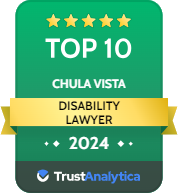
First things first: if you have suffered a workplace head injury, it is never too early to contact an experienced brain injury attorney in San Diego. You need a legal team which will go to any length in order to secure your workers compensation benefits so you can focus on your recovery. Here at Workers Compensation Attorney Group of San Diego, we always readily help our clients throughout the San Diego region get the maximum workers compensation they deserve.
Often, the injury itself is not even the worst part. It is what comes afterwards. Namely, a recovery from a brain injury can span a long period of time. To make things even worse, it is followed by various unknown and unforeseen side effects that may further drain your energy.
Simply put, a Traumatic Brain Injury happens due to the effect of some external causes, i.e., physical force which results in brain damage. Internal causes like a brain stroke or a tumor will not result in a TBI, and neither will loss of oxygen. For instance, a concussion represents a mild Traumatic Brain Injury which leaves temporary consequences, one of the most immediate ones being amnesia.
A Traumatic Brain Injury has the effect of creating an imbalance in the brain, interfering with how our brain normally works. Until the balance is restored and you start to recover, you may experience various difficulties that may take a toll on your daily life, your work and your relationships with other people. You will deal with physical and cognitive issues, as well as emotional and behavioral issues.
The good news is that not every head injury will result in a Traumatic Brain Injury. The bad news is that a TBI might not manifest itself right away, which is why medical attention is needed immediately.
A doctor will first conduct a simple check to see if the patient is alert, whether they can follow directions and move their eyes, arms and legs. They will also ask questions to check the patient’s speech coherence. If they suspect that the patient has experienced TBI, they will normally perform a CT or MRI scan.
What are the symptoms of a TBI?
Even a mild Traumatic Brain Injury can be followed by a range of symptoms:
Physical Symptoms
- Brief loss of consciousness (seconds or minutes)
- Feeling dazed & confused
- Loss of orientation
- Loss of balance and dizziness
- Headaches, often followed by nausea and vomiting
- Fatigue
- Speech difficulties
- Sleep deprivation or excessive sleeping
Sensory symptoms
- Sensory issues (blurred vision, ringing in the ears, unpleasant taste in the mouth)
- Heightened sensitivity to light and sound
Mental and cognitive symptoms
- Having difficulty memorizing things
- Having difficulty concentrating
- Mood changes and mood swings
- Depression and anxiety
As far as moderate and severe TBIs go, the patient may experience any of the above symptoms. Unfortunately, this is just the beginning of it.
There are other symptoms which are more intense and more severe and which make the patient’s life all the more difficult during the recovery period. These include prolonged loss of consciousness, convulsions, seizures, dilated pupils, fluids draining from the ears and nose, numbness, lack of coordination, speech difficulties, as well as overall confusion, agitation, combativeness and other strange changes in behavior. The possible complications include long-term effects, coma and death.
Does TBI have any long-term effects?
As stated above, severe TBIs might have long-term effects and complications, including coma and death. For this reason, it is of paramount importance that an experienced neurologist is put in charge so they can examine the patient on a regular basis and monitor their condition and their recovery process.
How long does it take to recover from a Traumatic Brain Injury?
The length of a recovery process following a TBI is impossible to determine without information about the severity of the condition, access to the patient’s medical records and an examination conducted by a neurologist. Every patient is unique and every injury is different. But roughly speaking, it could last for weeks, months, or, in the most severe cases, years.
During the recovery period, you should follow a simple routine to promote recovery and make things easier on yourself:
- Do not attempt to tough it out because that will only prolong the recovery process.
- Make to-do lists and write everything down.
- Keep a consistent schedule to avoid confusion.
- Keep your things in designated places and always put them back.
- Always take the same route when going somewhere by yourself.
- Avoid distractions such as being exposed to background noise.
- Say no to multitasking: work on one task at a time to stay focused.
- Whatever you’re doing, take as many breaks as you need.

Going all out to maximize your chances of getting what is rightfully yours
What you need is to track down a competent brain injury attorney in San Diego who will fight tooth and nail on your behalf. During the initial consultation, we will make sure you fully understand your rights and the course of action we plan to pursue in relation to your workers compensation claim filing process. We want to be certain that nothing will slip through the cracks and that there are no risks that you could be deceived by your employer or the insurance. Dedicate your time and energy to your recovery process, and we will handle the rest. Call today!





